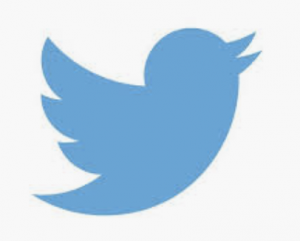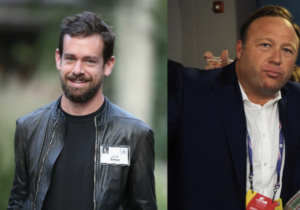Content moderation in Twitter
Screen Shot 2020-03-13 at 4.15.51 PM.png
Contents
Twitter at its core
Twitter, like its social media giant counterparts, Facebook and Instagram, generates massive amounts of revenue off of advertisements. Like most ad-based software companies, Twitter earns revenue on a per-click policy. The more time and attention users spend on the platform, the more money. Given their business model, it would make the most sense for a platform like Twitter to be as client-friendly as possible, in order to keep users on the platform and keep retention as high as possible. While Twitter has seen immense success over time, articles have shown that in recent years Twitter has faced a backlash from both users and from investors for taking actions that are not the most client-friendly. In particular, removing or suspending accounts of individuals who do not adhere to Twitter’s terms of service.
Twitter is not alone amongst tech giants when it comes to banning the accounts of users who have posted questionable content. However, the looseness of Twitter's terms of service in comparison to those of other social media platforms has become grounds for scrutiny over their handling of the respective removals. Does Twitter have a known political agenda? Does Twitter tend to skew mass conversations in a particular direction? While Twitter claims to have a non-biased method of reviewing content that is worthy of removal, their choices of who they do and do not ban are consistently being criticized by many.
Twitter’s terms of service vs other companies' terms of service
Although there are other social media platforms that certainly impose similar tactics when it comes to keeping their platforms as user friendly as possible, Twitter tends to differ in a way that begins to push ethical boundaries. Twitter is known for having a fairly vague and seemingly “user-friendly” terms of service. Unlike many other platforms, Twitter tends to allow things that others don’t, including things such as pornography and the ability for accounts to remain anonymous. While other social media platforms such as Facebook and Instagram tend to enforce and punish things of this nature harshly, this seems to be where Twitter tends to be a trendsetter for social media platforms. While some platforms believe that user retention is largely maintained by keeping the platform as clean as possible, Twitter believes that the key to a loyal consumer base is the ability to keep conversations going. Hence the reason why Twitter doesn’t have a problem with things like Pornography or the ability for users to post content without the repercussion of others knowing who they are. Because while both of those things leave room for other users to be provoked, provocative topics also tend to be conversation starters that keep users inclined to come back to the platform.
While there are individuals who have issues with the openness of Twitter’s Terms of Service, hearing Twitter’s Founder and current CEO Jack Dorsey speak on the Joe Rogan Podcast, it is difficult to argue with their stance that Twitter is an overarching tool used for modern communication. Although certain topics are edgy and risk making certain users uncomfortable, Jack Dorsey and Twitter believe that sometimes conflict and uncomfortable interjections are paramount for a healthy and credible discussion. Opinions on Twitter’s terms of service differ, however, from Twitter’s view as the giant moderator of many different sub discussions, it is understandable how they choose to regulate their terms of service.
Twitter’s Iron Fist
With the natural leniency of Twitter’s terms of service, it is no surprise that it has become the platform of choice for many polarizing figures ranging from athletes to business tycoons to political and public figures. However, despite giving users a large range of expression, Twitter has received backlash for how they have chosen to discipline users based on the content they post. In 2015 and 2016, thousands of accounts were removed being cited for “offensive content” or “nonconstructive input”. For a platform that frequently allows content that is overly gruesome or sexual, it does seem a bit double-sided to begin removing accounts for what Twitter is deeming to be signs of offensive content or comments that are deemed as nonconstructive.
Interestingly, this wasn’t just an issue amongst casual users and Twitter trolls, in fact, in 2018 the Republican Party made a claim that Twitter was disproportionately censoring the content of right-wing political accounts and not doing the same to left-wing accounts. The conversation of skewing topics to the left became a growing concern during the most recent presidential election. Funny enough, the Republican Party were not the only people who took issue with the content moderation choices made by Twitter. Democratic leader Kamala Harris began to take issue with the hypocrisy of Twitter to ban the accounts of casual users for relatively minor political remarks, while Presidential Candidate at the time Donald Trump was consistently making claims on Twitter that were legitimate grounds for removal. Some of Trump’s posts could have easily been interpreted as calling for crimes such as espionage. Publicly promoting crimes is explicitly against Twitter’s terms of use, however, Trump was never suspended or deplatformed to this day. There have been specific incidents where Twitter has voiced why they did or did not suspend/deplatform specific users based on their posts. A prime example was Alex Jones, who around late 2018 was de-platformed by pretty much every social networking giant including Facebook, Instagram, and Youtube(not explicitly a social network). Despite other platforms taking action Twitter claimed that Jones never explicitly violated their Terms of Service, so while polarizing and controversial, it wasn't enough to warrant removal from the platform. Despite giving justification to issues such as Jones’, to this day, they have still not publicly addressed why Donald Trump’s Twitter account has never been suspended or removed.
Notable Twitter Bans
- George Zimmerman (Permanent) Posted tweets containing revenge porn
- Milo Yiannopoulos (Permanent) Insulted Leslie Jones coinciding with a racist harassment campaign
- PewDiePie (Temporary) Temporarily suspended for pretending to be a member of ISIL
- Martin Shkreli (Permanent) Suspended for sexual harassment of journalist Lauren Duca
- David Duke (Temporary) Associated with the Unite the Right rally
- 70 million automated, troll, and fake accounts(Permanent) Part of a crackdown on malicious activity
- Alex Jones and InfoWars (Permanent) First suspended for a week on August 14 for violating the policy on "inciting violence"[106] and later banned on September 6 for violating the policy on "abusive behavior"
- James Woods (Temporary) Tweeted, "If you try to kill the King, you best not miss. #HangThemAll
- 200,000 Chinese accounts (Permanent) Believed the accounts were part of a Chinese government influence campaign targeting the protest movement in Hong Kong.
- 88,000 Saudi-linked accounts (Permanent) State-backed information operations originating in Saudi Arabia that "violated platform manipulation policies
Ethics of anonymity
The use of anonymous accounts on social platforms varies from platform to platform. Some companies, like Facebook, enforce a real-name policy. Twitter's CEO Jack Dorsey has consistently maintained the stance that anonymous accounts are essential for credible reporting and accurate news worldwide. Enormous quantities of people live under the rule of oppressive governments and would be harmed if they tweet accurate information that goes against the government. With that said, Twitter, along with other platforms have had to routinely ban millions of anonymous accounts that were being used maliciously, whether it be in the form of internet trolls or certain governments attempting to spread false propaganda. The ethics of anonymous accounts boil down to the conflict between Twitter's dedication to credible news vs. its susceptibility towards losing credibility as a platform if the use of malicious anonymous accounts becomes overblown. No anonymous accounts? No problem. However, that knowingly limits the voices of millions around the world. This is an ethical dilemma Twitter faces daily. To this point, they have continuously backed the use of anonymous accounts on the platform. However, that hasn't come without a plethora of anonymous accounts associated with malicious behavior being identified and taken down.
Why is This a big deal?
The inconsistency of Twitter’s iron fist has left many questions for current and prospective users of the service. Many people around the world rely on Twitter as a means of credible news and unbiased journalism. However, the relative shady-ness of Twitter’s choices of they do and don’t discipline has caused many to consider the credibility of the content found on the platform. If Twitter prides itself on being the best platform for open discussion, why have there been so many mysterious cases where some individuals have been deplatformed for one thing, and then another user doesn’t get deplatformed for doing the same thing? What warrants being deplatformed? Does Twitter have the right to not deplatform some people solely because they’re good for the business of Twitter? There are many ethical questions that can be derived from this ongoing topic. Ethics commissions are seemingly a direction that many are looking towards in the future to avoid these types of frustrations and misunderstandings amongst users. If Twitter is going to create software to detect posts that warrant removal, how can the general public be sure that that software isn’t picking and choosing who to censor? How can the public be sure that the platform is moderated in a fair way? It is highly possible that even Twitter doesn’t know the answers to many of these questions. This proves why addressing ethics is important and needs to remain consistent in order for all users of the service to know that they are being dealt with the most accurate and unbiased information possible.

